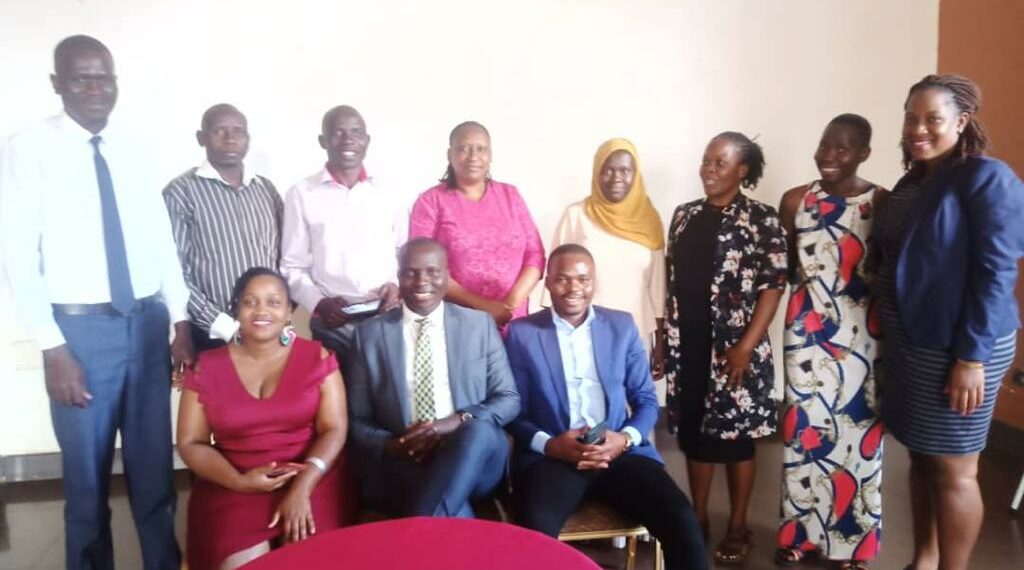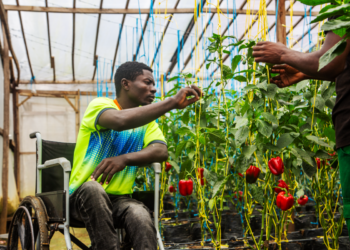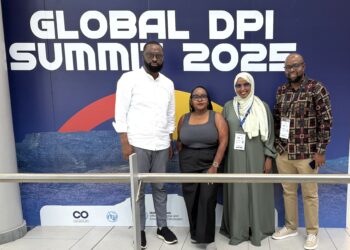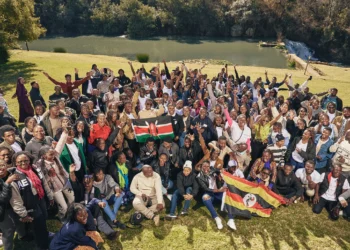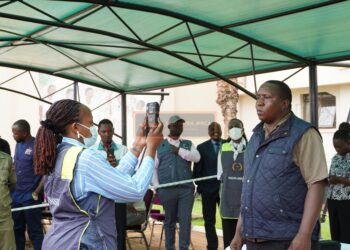As a lawyer, Ritah Nabakiibi earns a living from sitting on either side of any legal dispute to represent her clients. Yet, since 2017, she has embraced the practice of resolving conflicts through mediation. This means she forfeits any income whenever she voluntarily offers to help resolve disputes outside the legal justice system as a neutral third party.
So, what inspired a lawyer to offer unpaid services to resolve disputes she could earn from if it was taken before a court?
“I was just inspired by the society and people who were suffering injustices out there,” replies Nabakiibi in an interview at her chambers along Bombo Road in Kampala. “I said to myself, ‘You know what? We need to look beyond money. We need to look at peace in society because that’s what everyone desires.”
Nabakiibi has mediated various cases over the last five years, including land and commercial disputes. She, however, took a particular liking to resolving cases involving people infected with HIV, a disease that attacks the body’s immune system.
Asked why she got drawn to cases of HIV-affected people, Nabakiibi said her lightbulb moment happened in September 2018 at a magistrate’s court in the Kampala suburb of Mengo when she overheard a conversation that touched her deeply.
“I was at court waiting for my appearance. So, you know, as you are in a waiting area, people start discussing different issues. [A lady was saying], ‘You see, that family brought me to court just because they do not want me in their family [because] I am HIV positive,” she narrated.
Nabakiibi picked interest in the woman and her story. “When my session ended, I remained behind,” she added. “I had an interaction with her [and then] I talked to the mediator in Mengo and said, ‘I am interested in taking up this matter. Can I be part of it?’ So, that was my first time to [participate in the] mediation of an HIV-related matter.”
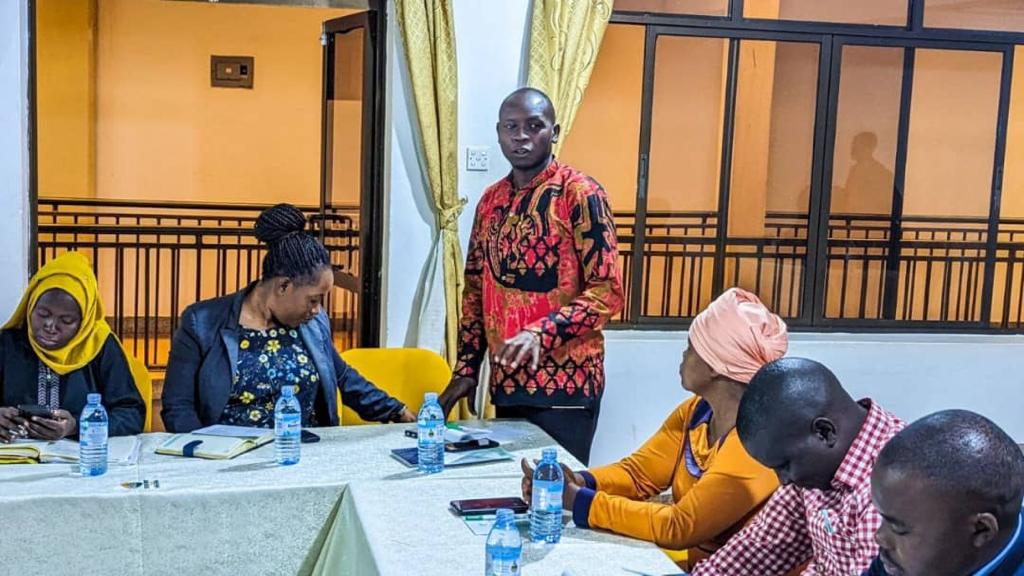
The Kampala-based Nabakiibi is not the only mediator drawn into HIV-related cases. Nearly 500 kilometres away from Kampala, in the north-western region city of Arua, Joramu Okumu of the West Nile Mediation Centre has done equally stellar work helping resolve cases involving people affected by the virus that can lead to AIDS (acquired immuno deficiency syndrome) if left untreated.
Okumu, who isn’t a lawyer but graduated in peace and conflict studies, says when he started carrying out mediation work in 2017, having got drawn to it during training on conflict resolution organised by Uganda’s judiciary, up to 90 per cent of the cases he was handling involved disagreements over land ownership.
However, with the help of studies and trainings from organizations such as the Uganda Network on Law, Ethics and HIV/AIDS (UGANET), Okumu soon realised that the numerous land conflicts were merely symptoms of HIV-related social issues, such as stigma and discrimination, which weren’t being addressed head-on.
“Originally, you would have an issue about property and mediate it as a property dispute. But then, behind it, there’s another issue that you don’t know about. You don’t go into detail about it. So, after the training of UGANET, we went in-depth to investigate,” he explained. “We realised that some people were being victimized because of their HIV/AIDS status.”

UGANET, established in 1995, is a non-governmental organisation composed of social justice advocates who empower communities to work towards ending violations of the rights of people affected by HIV/AIDS and Tuberculosis, especially women and girls. UGANET also brings together organizations and individuals interested in advocating for developing and strengthening an appropriate policy, legal, human rights and ethical response to Health and HIV/AIDS in Uganda.
In furtherance of such roles, UGANET recently released a handbook to offer prospective mediators insights on the challenges they are likely to face while doing their work, provide highlights of the national and global legal instruments for mediating HIV/AIDS cases, and addresses the United Nations’ guidance on media, as well as explaining the principles recommended by the UN while carrying out mediation.
“The handbook highlights the human rights (rights and interest-based) approaches to mediation and reflects on selected cases of HIV/AIDS handled by the High Court of Uganda and the treatment given to the PLHIV subject to prosecution in such cases. The handbook finally poses a challenge of mediation in the criminal justice system in Uganda, which may not be rooted in the law but emphasizes room for reconciliatory justice,” says the synopsis for the 20-page handbook, which was written by seasoned social justice lawyers Paul Mukiibi and Immaculate Bazare Owomugisha.
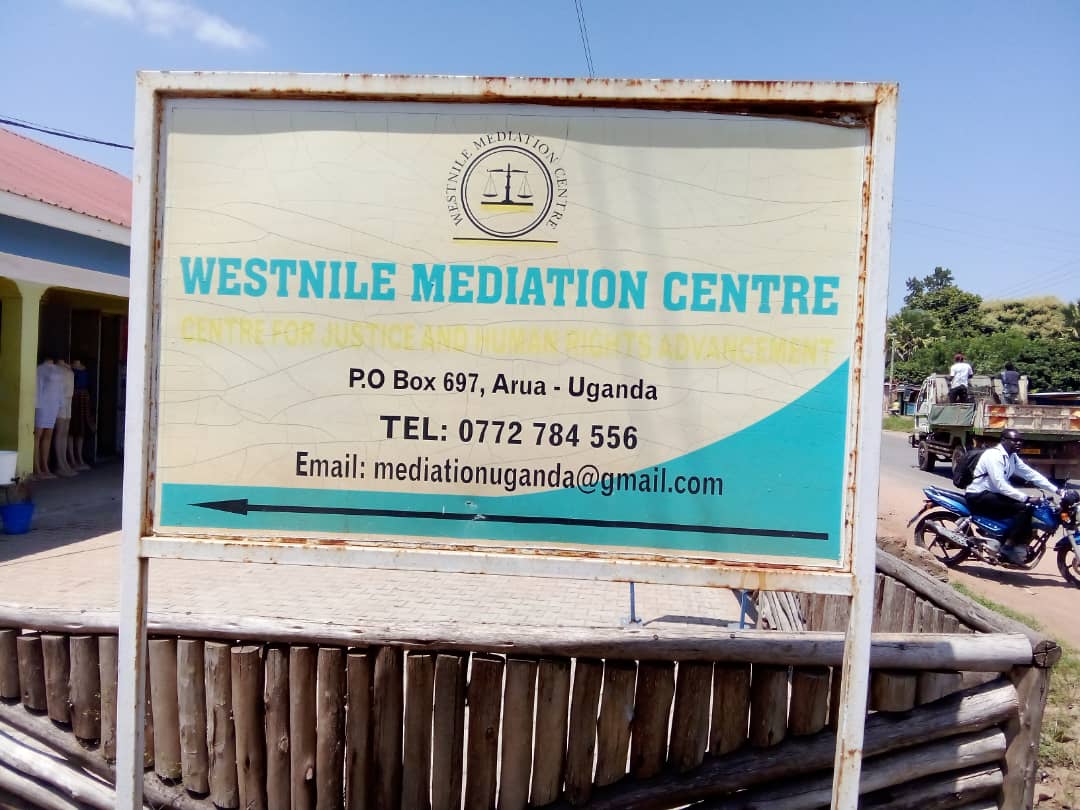
According to Moses Okello, a mediator from Apac district in northern Uganda who has carried out the work for seven years, he has also benefitted from a training and sensitization workshop that UGANET offers.
“There is a time we had a meeting in Kampala by UGANET; more like a sensitization workshop,” he said. “They created awareness that, ‘you people, you need to support your daughters and sisters who are HIV positive.”
However, Okello says UGANET and other organizations that support mediators need to do more in the areas of training arbitrators and offering them material support to ensure that, even as they provide unpaid services, they at least have the requisite facilitation to reach all the people whose cases they need to intercede.
Responding to Okello’s request, the head of advocacy and strategic litigation at UGANET, Immaculate Bazare Owomugisha, said court-sanctioned mediation on HIV and human rights-related cases is a new area of law in Uganda, which requires continuous training, availability of information and resource material for reference while handling cases.
“If we get more funding, then we can produce more materials, conduct more trainings and scale up the intervention by reaching out to mediators across all court circuits,” she said, adding: “While this is a voluntary role, it is important to facilitate mediators to reach out to the communities and be able to follow up cases from the courts to the communities, where the mediation happens, to allow for a comprehensive way of resolving a matter at mediation by involving all the parties to the conflict.”
Owomugisha noted that in cases involving people affected by HIV, some require technical expertise to offer services that will enable them to appreciate the mediation process when it begins.
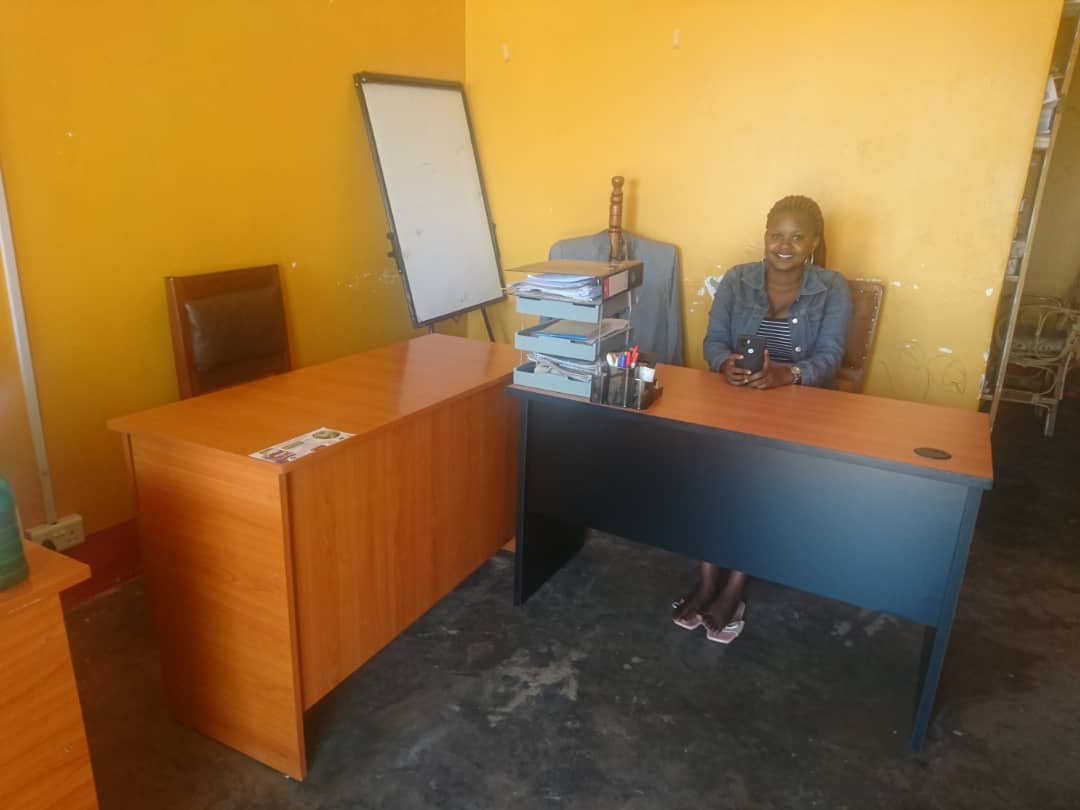
“In some cases, they need to have a counsellor come in to talk to the complainants, and these are skills that mediators don’t have, meaning they need to reach out to professional counsellors within the community. So, it’s right that they need to be facilitated to bring in more technical expertise during mediation and to go to the communities to ensure that mediation is concluded without bias.”
Both the individuals and organizations that have piloted mediation and put it at the centre stage of resolving cases involving persons living with HIV/AIDS are excited by the results they have so far achieved with this non-conventional approach to seeking justice. With additional trainings and resources, they believe they can accomplish a lot more in offering an avenue to conflict resolution that preserves the dignity of a group of people often victimized because of their health status.
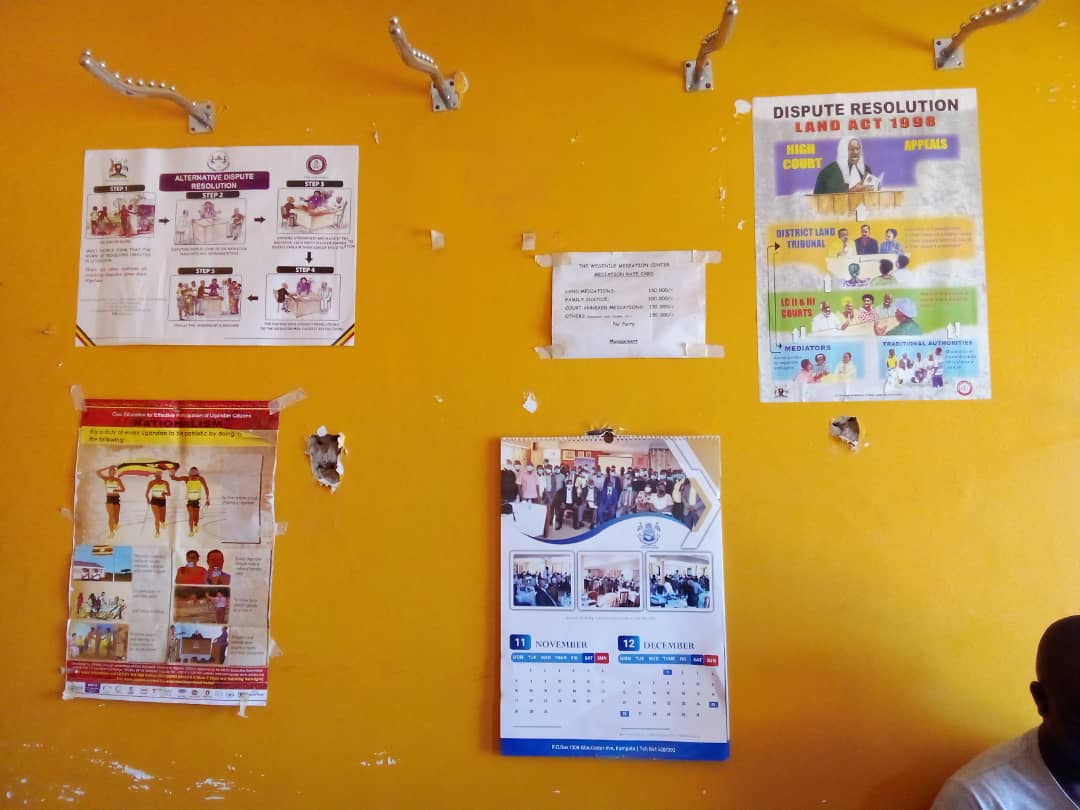
Top Tips from Mediators to Those Wishing to Offer Services as Mediators
- RITAH NABAKIIBI, LAWYER: “When conducting a mediation, you have to be a partial person. We do not take sides. You have to be partial because once you take sides, then you cannot mediate. Then we do not pick interests in the subject matter because once you pick an interest in the subject matter, you are part of the conflict.”
- JORAMU OKUMU, NILE MEDIATION CENTRE: “I will not advise somebody wanting to join mediation to rush straight into the HIV/AIDS and human rights issues. Even for us, that one took us by surprise until we had the training from UGANET, and we are still learning it. But for someone to join meditation, it is a good step to take to offer back to the community the peace you will want to have.”
- MOSES OKELLO, APAC DISTRICT: “To be an accredited court mediator, you must have been trained by an institution that is mandated to conduct training for mediators, such as the International Centre for Arbitration and Mediation in Kampala (ICAMEK). After training, the High Court of Uganda must accredit you as a court-accredited mediator. Aspiring mediators should also bear in mind that mediation is based on ethical considerations such as you must not be judgmental or biased, you must be a good listener, etc. If you undergo the training and appreciate the ethical considerations, then you can practice. However, mediators must also appreciate that the law changes regularly, so they need to keep updated on the matters of law and facts of law for them to be well-guided and grounded in mediation.”




